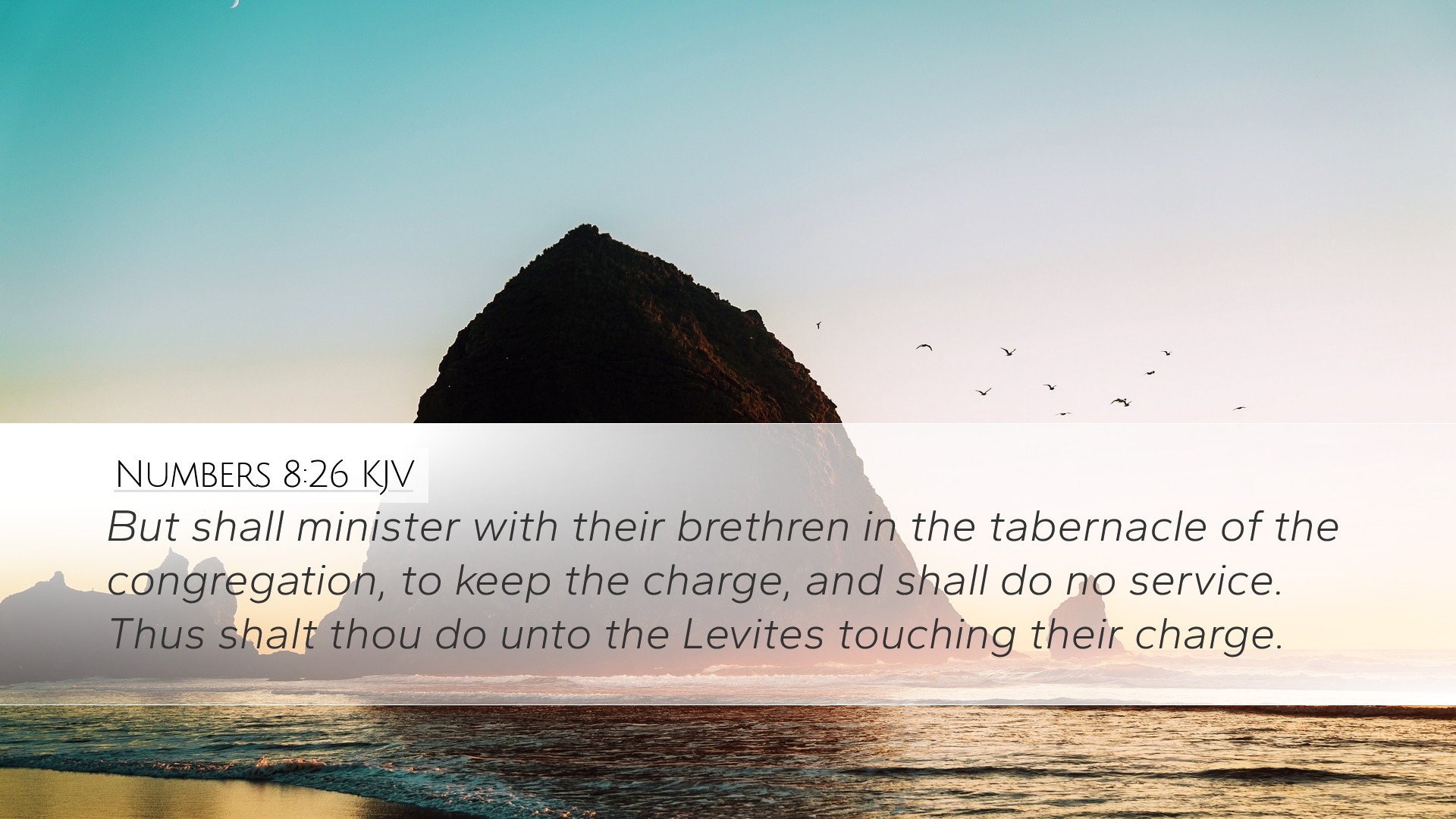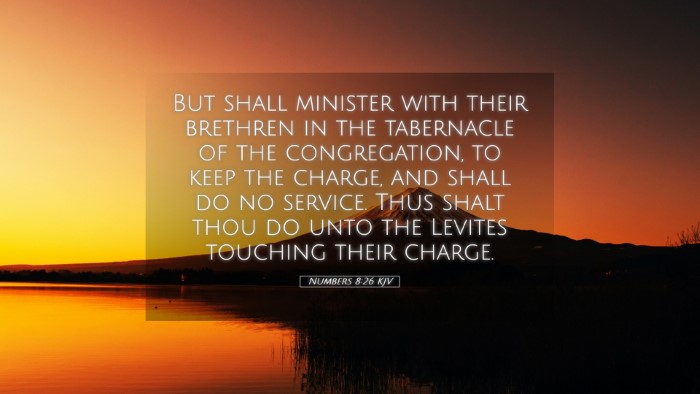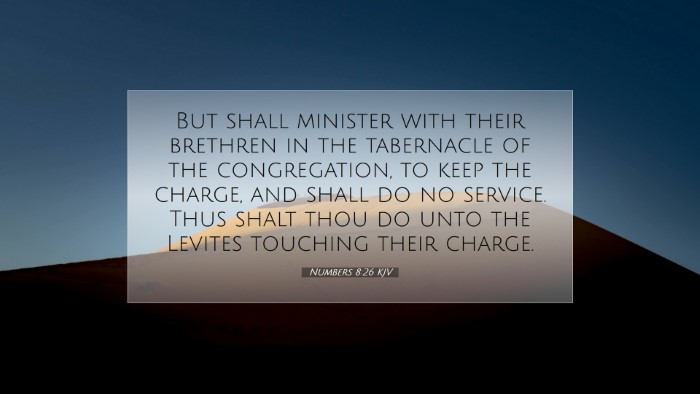Commentary on Numbers 8:26
Verse Text: "But shall minister with their brethren in the tabernacle of the congregation, to keep the charge, and shall do no service. Thus shalt thou do unto the Levites touching their charge."
Introduction
This verse presents a crucial aspect of the duties assigned to the Levites concerning their role in the sanctuary. It is essential to examine this verse not only in its immediate context but also in the broader narrative of the Israelites' wilderness journey.
Contextual Background
The Book of Numbers describes the organization of the Israelite camp and the roles assigned to the different tribes, particularly the Levites. This chapter emphasizes the separation of the Levites for specific service in the tabernacle, a theme that resonates throughout the Torah.
Historical Setting
The Levites were set apart from the other tribes of Israel by virtue of their unique role in worship and service to God. Numbers 8 discusses their consecration and duties, highlighting their importance in the spiritual life of the community.
Theological Implications
This verse encapsulates the idea of shared ministry, emphasizing both the personal dedication required from the Levites and their collaborative function within the community of faith. The phrase "with their brethren" illustrates the necessity of unity among the servants of the Lord.
Ministry and Service
According to Matthew Henry, the Levites were not to be idle; instead, their role was to assist and support the priests in ceremonial duties. Their work reflects a broader theological principle that all who serve God are to work alongside one another for the edification of the community.
Shared Responsibility
Albert Barnes comments that the Levites' collaboration signifies the importance of collective ministry. The Levites' work was multifaceted; besides their duty in the tabernacle, they also had responsibilities pertaining to the service of God that required cooperation and coordination with their fellow Levites.
Understanding 'Charge'
The term "charge" represents the divine responsibilities entrusted to the Levites. Adam Clarke emphasizes that this indicates a serious obligation to fulfill God's commands while also implying a moral and spiritual accountability.
Practical Outcomes for Today’s Church
The implications of this verse extend to modern discussions of church leadership and lay ministry. In contemporary settings, pastors and church leaders can draw parallels to the shared ministry model presented here.
Collaboration in Ministry
Just as the Levites worked together in the ancient tabernacle, modern church bodies are encouraged to engage in collaborative ministry, where each member contributes according to their gifting and calling, fostering a spirit of unity.
Responsibility of the Church
This verse also serves as a reminder of the responsibility each member of the church has toward their spiritual growth and service. Leaders are to empower those in their charge to actively participate in the life of the church, echoing the service ethos of the Levites.
Conclusion
In summary, Numbers 8:26 speaks to the role of the Levites in the tabernacle while offering a timeless principle on shared service in the community of faith. The call to function together in ministry not only applies to church leaders and staff but extends to every member of the congregation.
As we reflect on this text, may we be inspired to serve in our respective capacities and serve 'with our brethren,' keeping the charge of the Lord, and working together for the glory of God.


